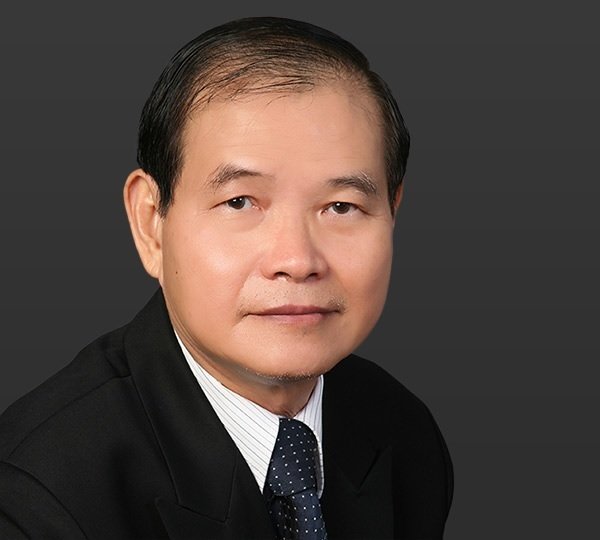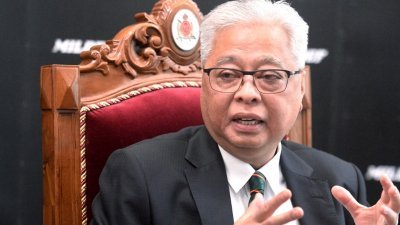造成巨大鸿沟的主要因素之一是网络数字、人工智能经济的飞速发展,高薪阶层和相关企业利润速增,而把其他较传统行业挤压下去。的确,中国庞大的民企累积财富的能力和欲望是惊人的。截至2020年8月,胡润(Rupert Hoogewerf)报告称中国拥有十亿美元资产以上的富翁总数达878位,而榜首是阿里巴巴的创办人马云,其财富达到588亿美元。中国也是拥有世界最多初创、快速成长的“独角兽”企业。这类拥有10亿美元以上的企业超越了美国。
中国民企的壮大过程,并非是在资本主义制度下促成,而是在原本强力压制资本主义的共产党,经过经济改革而成。但中共基本并没大力进行过政治改革,仍保留了一党专政。民企尽可能富可敌国,但绝对不会被允许寻找自己的政治代言人或团体向中国政府要求分权或取而代之。最近中国官媒说的“把资本关在笼子里”这句话,就是针对民营大企业家说的。
马云和其他互联网巨富的成功,很大程度上要归功于中国不开放外国竞争者进场。反过来说,中国政府也想领导甚至控制民企,要民企认同党的政策,做个政治上的“明白人”,自觉参与国家重大战略和维护国家利益。
说到维护国家利益,不外是要民企分担政府政策的责任。2014年实施“一带一路”路线以来,国内和国外的庞大基建投资和发展,尚未收到经济回收,一些在国内落后地区或海外开发的基建,均以政治或外交联盟和国际战略为优先考虑、经济回收为次。譬如中国协助斯里兰卡建好的汉班托塔港,因该国无钱偿还债务,已将海港租给中国营运99年,但盈利潜能中短期内还是个未知数。
综合上述中国政府面对的各项问题,再加上疫情发展也加深了财政困难,我们就不难想像今年8月29日在具有巨大影响力的官媒《人民网》出现的一篇文章,由李光满撰写题为“每个人都能感受到,一场深刻的变革正在进行”。文章措辞强硬,提到富者愈富、贫者愈贫是越来越大的问题,需走共同富裕道路让普通劳动者能够获得更多收入,也论述当前国际环境严峻复杂,美国正在对中国实施军事威胁、经济及科技封锁、金融打击、政治及外交围剿等,并利用中国内部的第五纵队对中国发动颜色革命。民企大资本家被看成是这类第五纵队的代表,会迎合美国的战略,任国家崩溃和财富被洗劫,任人民陷入深重灾难。
不少政治评论员把该文说成是习近平授意李光满发表,意图掀起一场新文革,重新向左转,打击民营资本家,整治中国“臭气熏天”又与上市大民企套大钱的娱乐圈,还包括滴滴打车,校外培训等无序乱象。不过从实情看来,习近平即使威望再高,也不可能独断专行再搞文革。
再说,习近平个人也不会有重搞文革的意愿,这个我们从他施政重点放在扶贫工作、提出创建共富社会就可看出,他不会让中国人重新过均贫的日子。尽管习近平没给“共富”下定义,但从字面看来,只能说是一种虚拟的理想主义。
数月来中国对大民企的打压和整治,是在贫富差距扩大、国内经济出现难题、美国不断向中国施压下,对民营膨胀发展又藐视中央领导的杀威棒。民营资本与外国资本联合发展也被看成外国资本将会威胁到中国国家的安全。须知民企的成长,仍然离不开类似中国封建时代与官府紧密联系并取得庇护这一运作机制。
中国的经济增长绝对不能没有大民企,因为国企经营垄断型生意还行,非垄断生意并不具民企的竞争力。但民企没有自己的政治代言人,没有权贵家族的合作和庇护,民企什么都不是。
黄大志:中国政府为何打击整治大民企?(下)英文稿:What has happened to China’s Large Private Entrepreneurs?
One of the main factors that have caused the huge gap is the rapid development of digital network and artificial intelligence economy, which has witnessed a rapid increase in profits of related enterprises and high-income earners. Rise of such economy has squeezed other more traditional industries. Indeed, the ability and desire of China's huge private enterprises to accumulate wealth is amazing. As of August 2020, Hurun (Rupert Hoogewerf) reported that China had 878 billionaires with assets of more than one billion U.S. dollars. At the top of the list was Jack Ma, the founder of Alibaba, whose wealth had reached US$58.8 billion. China is also home to the world's most start-up and fast-growing "unicorn" companies. Such companies with more than US$1 billion surpassed the United States.
As a matter of fact, the growth process of China's private enterprises was not endorsed under the capitalist system, but was formed through economic reforms by the Chinese Communist Party, which was originally a strong suppressor of capitalism. However, the CCP has not vigorously carried out political reforms, and still retains a one-party dictatorship. Private enterprises may be truly rich, but they will never be allowed to find their own political spokespersons or groupings to demand the sharing of power from the Chinese government or replace them. The phrase "keep capital in a cage" recently mentioned by the Chinese state media is aimed at large private entrepreneurs.
Private enterprises should act as “understandable persons”
The success of Jack Ma and other Internet giants is largely due to China's refusal to open foreign competitors into the market. On the other hand, the Chinese government also wants to lead or even control private enterprises, requiring them to agree with the party's policies, be a political "understandable person", and participate consciously in major national strategies and safeguard national interests.
When it comes to safeguarding national interests, it is nothing more than asking private enterprises to share the responsibilities of government policies. Since the implementation of the “Belt and Road Initiative” in 2014, huge funds pumped into domestic and foreign infrastructure projects have yet to see the return to such investments. Many infrastructure projects developed in backward areas in China or overseas have prioritised political or diplomatic alliances and international strategies over economic return. For example, China has helped Sri Lanka build the Hambantota Port. But the country has no money to repay its debts, and has thus leased the port to China for 99 years of operation. However, the profit potential is still unknown in the short to medium term.
Based on the above-mentioned problems faced by the Chinese government, coupled with the development of the Covid epidemic which has also deepened financial difficulties, it is not difficult to imagine an article that appeared on the highly influential official media "People's Daily Online" on August 29 this year, written by Li Guangman. The wording of the article, "Everyone can feel that a profound change is underway", is very strong. It mentions that the rich getting richer and the poor getting poorer is a growing problem, and it is necessary to take the road of common prosperity so that ordinary workers can get higher income.
The article also discusses that the current international environment is severe and complex. The United States is countering China with military threats, economic and technological blockades, financial strikes, political and diplomatic encirclement and suppression, etc. Inside China, a fifth column has also launched a “colour revolution” against the ruling government. Large local capitalists are seen as representatives of this type of fifth column who would respond to the American strategy and allow the country to collapse, wealth to be looted, and people to fall into serious disaster.
Many political commentators described the article by Li Guangman was acted under the instruction of Xi Jinping which had intended to set off a new Cultural Revolution, turning to the left, cracking down on private capitalists, and rectifying China’s “filthy” entertainment industry that has made big money with listed private companies. Also in the hit list were Didi taxi, out-of- school tuition and other disorderly businesses. However, the fact is, no matter how prestigious Xi Jinping is, it is impossible for him to act arbitrarily and initiate again a Cultural Revolution.
Besides, Xi does not give the impression that he wishes to re-start a Cultural Revolution and this can be seen from his focus on poverty alleviation work and proposal to create a society of common prosperity. He definitely will not let the Chinese live a life of shared poverty again. Although Xi Jinping did not define common prosperity, it can only be described as a kind of virtual idealism from a literal perspective.
Over the past few months, China's suppression and rectification of large private enterprises is a defiance of the expansion of the private sector in circumstances where the gap between the rich and the poor is widening, the domestic economy is experiencing problems, and the United States continues to assert pressure on China. The joint effort of private capital and foreign capital is also seen as an infiltration of foreign capital that will threaten China's national security.
Overall, it should be noted that the growth of private enterprises is still inseparable from an operating mechanism similar to that of China's feudal era, where close connection with the governing regime for asylum was critical. China's on-going economic growth must not go without large private enterprises, because state-owned enterprises are reasonable in operating monopolistic businesses, but they are not as competitive as private enterprises in non-protected sectors. As private enterprises do not have their own political spokespersons, private enterprises are just nothing if without the cooperation and protection of powerful politically linked families.
要看最快最熱資訊,請來Follow我們 《東方日報》WhatsApp Channel.


















